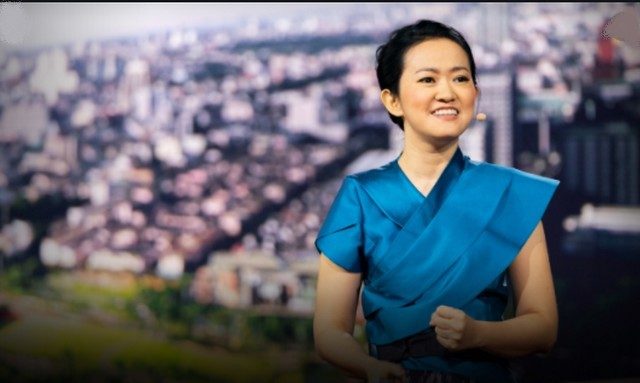Above the dusty and busy streets of Bangkok, a concrete space that previously didn’t really interest many people is now a small oasis. A gardener gently sprays water on the beds of leafy plants, herbs and vegetables. It’s good for the city and it makes the tourists happy.
« Bangkok and other urban areas of the kingdom are perfect for growing vegetables, » said landscape architect Kochakorn Voraakhom (photo opposite). Ms. Kotchakorn has become world famous for her work on developing green public spaces that combat climate change.
 « With the help of modern technology, small-scale agriculture will not only contribute to food security, but also to making it more sustainable, » says Kotchakorn.
« With the help of modern technology, small-scale agriculture will not only contribute to food security, but also to making it more sustainable, » says Kotchakorn.
« Consumers are here in town. Growing vegetables here, on the roofs of buildings used because of lack of space, will reduce the need to transport crops, » she said recently. » We can get fresh food and reduce food waste ».
 « A UN report shows that nearly 70 percent of the world’s population will live in urban areas by 2050, » she commented. « Keeping in mind the loss of food sources, we are teaching people to grow organic vegetables on unused land ».
« A UN report shows that nearly 70 percent of the world’s population will live in urban areas by 2050, » she commented. « Keeping in mind the loss of food sources, we are teaching people to grow organic vegetables on unused land ».
The Covid-19 pandemic has sparked interest in urban agriculture in recent months. Rooftop gardens can play an important role in filling the gap in times of crisis.
« You can do this in an apartment, but community gardens, on rooftops or elsewhere, will create networks of residents who will help each other during times of uncertainty, » Varangkanang added.
The Thai City Farm project oversees more than 300 community gardens in Bangkok.